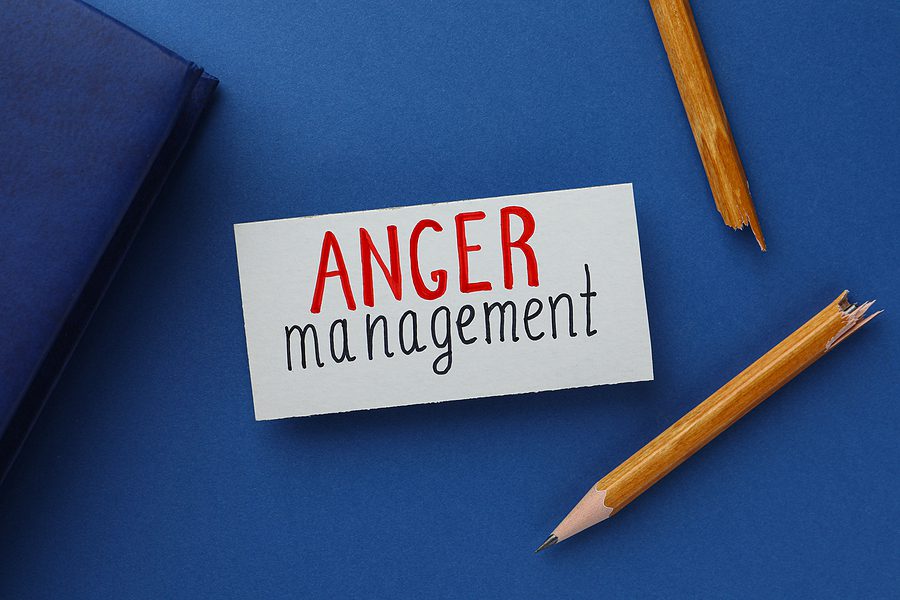It is not uncommon for families to notice their once mild-mannered loved one get angrier in their old age. Generally, this anger is not just an effect of aging but can be a sign of something else entirely. This article will discuss ways you and your loved one can find the root cause of their anger and tools to help curb angry outbursts.
Anger and Health Issues
Angry outbursts could be a sign of a health problem, whether physical, cognitive, or emotional. For example, cognitive confusion could cause one to lash out. On the other hand, frequently feeling pain could have a similar effect on one’s mood. Talk with your loved one’s doctor about changes in their mood, and what could be the root cause.
Urinary Tract Infections, commonly referred to as UTI’s can also cause a sharp decline in mental abilities. Anger, agitation, hallucinations, disoriented thinking, dizziness (which can cause falls), and increased confusion can all occur. Altered mental status is often the only symptom of a UTI in an elderly person. These symptoms are often mistaken for early stages of dementia, but all can be caused by a UTI. A urinalysis can confirm if a UTI is present.
Negative Emotions and Medications
Mood swings can be a common side effect of some medications. Reviewing your loved one’s prescription regimen could potentially alleviate some of the angry outbursts. Your loved one’s physician can check their medicine for possible side effects, and see if there are any changes that could be made to reduce mood swings.
Identifying and Reducing Stressors
Stress relief is important at any age. Overall, stress can have a serious impact on one’s physical, mental, and emotional health. Reducing the stressors in their life can help reduce anger, and can benefit their overall quality of life. You may not be able to remove all the stressors in their life, but try to mitigate the ones you can. For example, if they are angry that they can’t take care of themselves like they used to, hiring a home health aide to assist them can help reduce that stress.
Adjust Media Intake to Reduce Anger
Many media outlets (especially news) can rile up individuals. Especially when it comes to political information, partisan media can use anger to motivate its viewers to action. Many seniors that sit at home and watch the news all day could be on edge because the media they consume is trying to enrage them into voting one way over the other. Talk with your loved one about what they watch on a daily basis. You may not be able to convince them to trust other news sources with different views, but you may be able to convince them to watch other shows or movies. Try watching some of their favorite movies or classic shows with them. Taking a break from political media can be refreshing.
Activities that Promote Positive Attitudes
Many activities can reduce anger, and increase overall mood. Walks in the park, yoga, and sitting in the garden can all provide positive emotional benefits. Additionally, spending time being active can make people feel physically better. Help your loved one get moving, even if it’s as simple as a walk around the block.
Isolation Creates Anger
Feelings of isolation can create emotional distress. This distress can lead to anger, depression, and anxiety. As we age, it can be harder to go out of the house and socialize. For many elderly individuals, their number of close friends and loved ones may dwindle through the years. It is important to provide social opportunities for your elderly loved ones. Schedule visits with the grandchildren, or consider getting them a pet. Additionally, home healthcare assistance can provide opportunities for socialization. One of the most important aspects of a Home Health Aide’s job is to provide companionship to the client.
Professional Anger Management Counseling
Mental health care is something that is often overlooked, especially by older generations. Consider taking your loved one to seek professional anger management counseling. Anger management training from a psychiatrist, psychologist, counselor, or social worker could potentially help your loved one mitigate their aggressive emotions. Furthermore, they may be able to help them channel their energy in a more positive manner.
Safe Harbor Healthcare Services does not provide medical, healthcare, or financial advice via articles. This material has been prepared for informational purposes only. It is not intended to provide, and should not be relied on for medical advice.
Safe Harbor Healthcare Services has been providing excellent home care on Staten Island since 1967. Our services help the elderly and disabled live safely and independently; while giving their families the peace of mind they need. For more information contact us by clicking here, or by calling (718)-979-6900.

